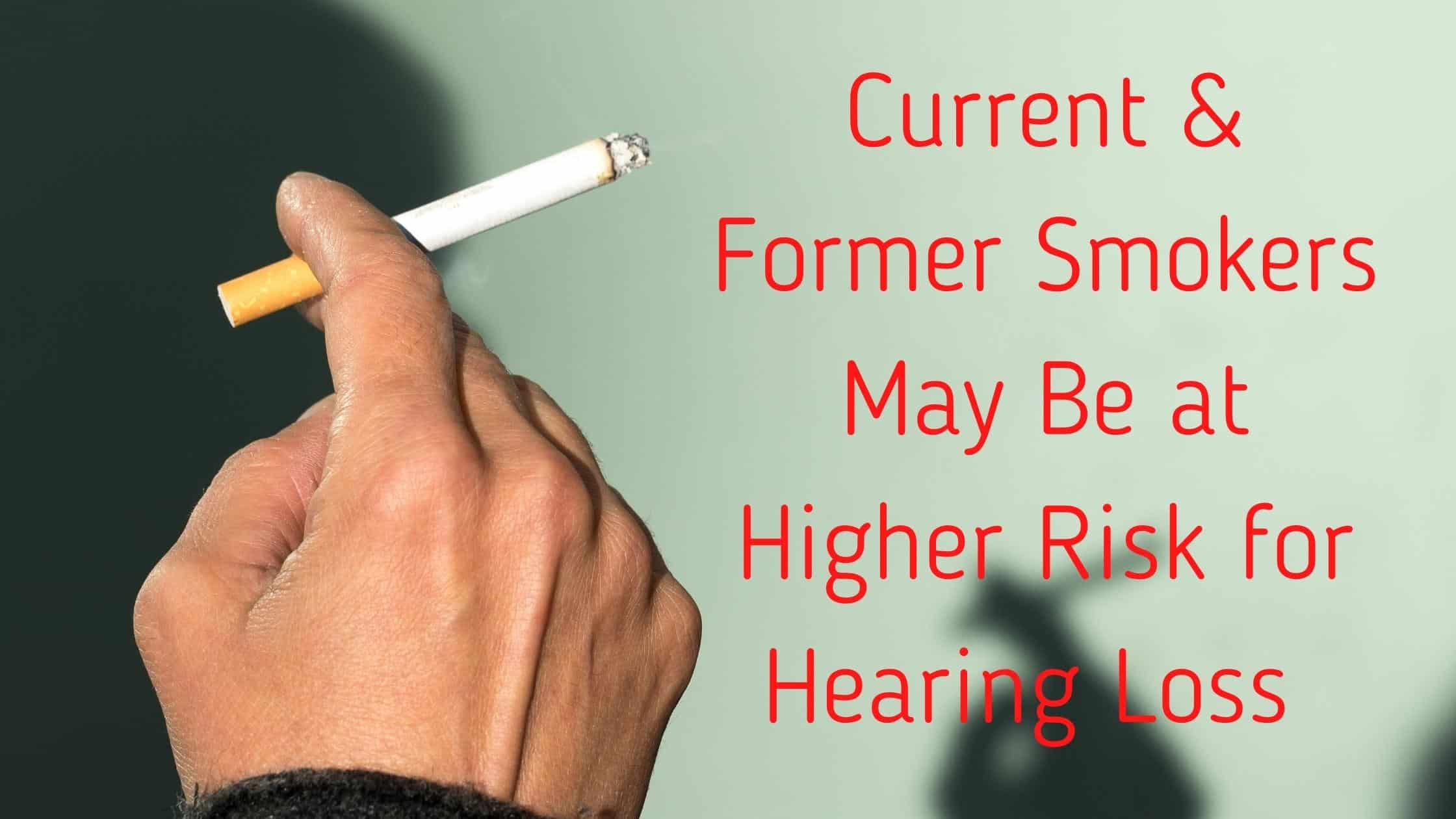We’re all aware of the long list of health hazards associated with smoking, ranging from cancer to cardiovascular disease. But what if these well-known dangers aren’t enough to make you want to stop smoking or stay away from cigarettes in the first place? In that situation, there’s one more thing to think about: your hearing health.
Study finds link between hearing loss and smoking.
In research revolving around smoking and smoking cessation, a ‘pack-year is a method of calculating how much a person has smoked over a long period. It’s determined by multiplying the number of packs smoked per day by the number of years the individual has smoked.
According to a recent report, women with more pack-years of smoking history had a higher risk of moderate or severe hearing loss than women with fewer “pack-years.”
There was a general tendency toward a higher risk of moderate or severe hearing loss in women who had smoked for more pack-years in the past.
How does smoking cause hearing loss?
We need to pay attention to nicotine if we want to figure out why smoking can cause hearing loss. This is an ototoxic chemical, which means it harms the ears.
Nicotine reduces blood flow and depletes oxygen levels in your cells. The fragile cells in your inner ear are particularly vulnerable to oxygen deprivation, and they can suffocate and die as a result. Your hearing range begins to deteriorate. You find yourself unable to comprehend what is being said or keep up with conversations.
According to a new study of over 150,000 smoking and non-smoking adults, the more you smoke or are around people who smoke, the more likely you will experience hearing loss. Smokers were over 15% more likely than non-smokers to have hearing loss! Ex-smokers were found to be less likely than non-smokers to suffer from hearing loss. This is possible because people who quit smoking also make some other lifestyle improvements to improve their health, lowering their risk of hearing loss.
Secondhand smoke has a similar effect.
Hearing loss was seen in nearly 10% of a recent group of secondhand smokers in a recent study. Hearing loss is 70 percent more common in smokers than in non-smokers and is twice as common in non-smokers who live with smokers. Giving up smoking but being in an area where you are exposed to smoke, such as at work, can result in hearing loss.
Noise can exacerbate the problem.
When noise exposure is included in the calculation, hearing loss increases proportionately. According to another recent study of workers, employees in a noisy industrial setting who also smoked were four times more likely to have hearing loss. Individuals who worked in entertainment venues for more than 20 hours a week and were exposed to secondhand smoke were also more likely to develop hearing loss.
Is it time to break the habit?
We’re all aware of the dangers of smoking, but that doesn’t make it any easier to quit. Whether you’re a once-a-day teen smoker or a lifetime pack-a-day smoker, quitting smoking can be difficult.
Tobacco use is both a physical and psychological addiction. Cigarettes contain nicotine, which offers a short-term — and addictive — high. When you stop getting your nicotine fix, your body goes through physical withdrawal symptoms and craves. You can turn to cigarettes as a fast and reliable way to improve your mood, relieve stress, and unwind due to nicotine’s “feel good” effect on the brain. Smoking can also be a coping mechanism for depression, anxiety, and boredom. Seeking new, healthy ways to deal with those emotions is part of quitting.
It can also be entrenched as a regular habit. Smoking a cigarette with your morning coffee, or during a break at work or school, or on your drive home at the end of a long day might be automatic for you. Maybe your friends, relatives, or coworkers smoke, and it’s become ingrained in your interactions with them.
To effectively quit smoking, you must treat both the addiction and the associated behaviors and routines. But it is possible. Even if they’ve tried and failed before, any smoker can kick the habit with the right quit plan!
Stay hearing healthy
The next move is to schedule a hearing test if you suspect hearing loss due to smoking or secondhand smoke. It’s fast and painless, and once you’ve received a diagnosis from our team, you can start looking at hearing loss recovery options to bring you back to living your best life.

